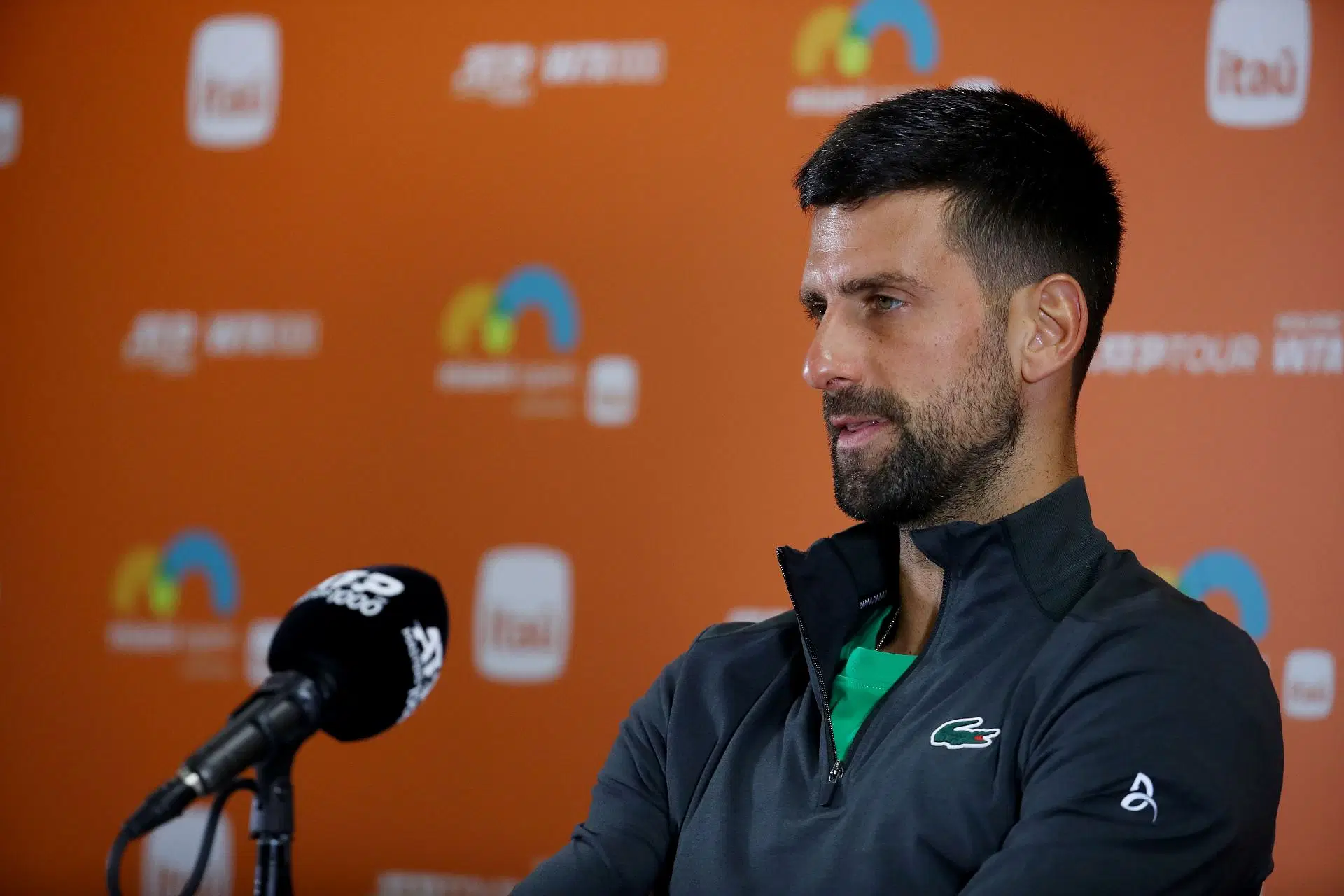
At 37, Novak Djokovic stands as tennis’s enduring titan, with 24 Grand Slam titles and a legacy that rivals any in the sport’s history. Yet, as he navigates the twilight of his career, the Serbian superstar is grappling with a force as formidable as any opponent: the pressure he places on himself to sustain his unparalleled success. In a revealing interview ahead of the 2025 Madrid Open, where he suffered a shock second-round loss to Matteo Arnaldi on April 26, Djokovic peeled back the curtain on his mindset, offering a raw glimpse into the mental battles that accompany his quest for greatness. “I’m very self-critical and always have been,” he admitted, shedding light on the internal drive that both fuels and burdens him.
Djokovic’s 2025 season has been a study in contrasts. A Miami Open final, where he fell to Jakub Mensik, showcased his enduring brilliance, but early exits in Monte-Carlo to Alejandro Tabilo and Madrid marked a rare string of defeats. The Arnaldi loss, a 6-3, 6-4 upset by the world No. 44, exposed vulnerabilities, with Djokovic’s 32 unforced errors and 40 percent second-serve win rate signaling a dip in form. “I lost to a better player,” he said post-match, a gracious nod to Arnaldi’s bold play. Yet, it was his broader reflections on pressure that resonated most deeply. “I probably put more pressure on myself than all the others put together,” he confessed, acknowledging that his relentless pursuit of perfection—chasing a 100th career title and a 25th Major—often overshadows external expectations.
This self-imposed pressure has been a double-edged sword throughout Djokovic’s career. It drove him to surpass Roger Federer and Rafael Nadal in Grand Slam titles, culminating in his 2023 US Open triumph, and fueled his 2024 Olympic gold in Paris, a career-defining moment. But it also amplifies the sting of setbacks, particularly as younger players like Carlos Alcaraz and Jannik Sinner challenge his dominance. “I don’t think I would have achieved all I achieved without this kind of mentality,” Djokovic noted, crediting his high standards for his longevity. At the same time, he’s learning to temper this intensity, recognizing the toll it takes. “It’s also something that I’m trying to work on, to ease that pressure a little bit and just accept the moment for what it is.”
The Madrid Open, where Djokovic returned after skipping 2023 and 2024, was a chance to rebuild momentum on clay ahead of Roland Garros. With Andy Murray, his new coach and former rival, by his side, expectations were high. Murray’s appointment in late 2024 was a bold move, blending Djokovic’s experience with Murray’s tactical acumen. Yet, the Arnaldi defeat underscored the challenges of maintaining elite form at 37. “This level of tennis is not where I would like it to be,” Djokovic said, describing the past 12 months—marked by four first-round exits in five tournaments—as a “completely different feeling” from his two decades of dominance.
Djokovic’s candor reflects a shift in perspective. He’s no longer the undisputed favorite, a reality he embraces as he eyes the French Open. “I’m not going into Roland Garros as one of the main favorites. Maybe that can help,” he mused, suggesting that lower expectations could free him to play with abandon. His work with sports psychologist Claudio Robazza has helped him navigate these mental hurdles, focusing on acceptance rather than perfection. “I’m trying to use this as a driving force for the future,” he added, signaling his intent to channel setbacks into motivation.
The tennis world remains captivated by Djokovic’s journey. Coco Gauff, a Roland Garros finalist, called him “the greatest tennis player” and a favorite “no matter what,” while Stefanos Tsitsipas warned, “With Novak, you never know.” As Djokovic prepares for Rome and Roland Garros, his openness about self-criticism humanizes a champion often seen as invincible. Whether this pressure propels him to new heights or proves a hurdle too high, Djokovic’s resolve to confront it head-on ensures his story remains one of resilience and reinvention.
Leave a Reply